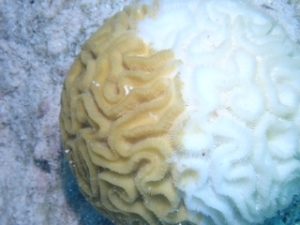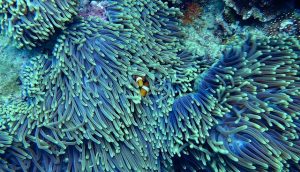In recent years, social media has become a powerful platform for sharing personal experiences, adventures, and even raising awareness about important issues. Unfortunately, it has also given rise to dangerous trends that pose a threat to our environment and its inhabitants. One such trend is the practice of picking up live starfish from their natural habitat for the sole purpose of taking selfies. In this blog, we will delve into the severe consequences of this behavior and discuss the efforts of Brittany Mitchell from savingourocean.org to raise awareness about the harmful impact on starfish populations.
The Beauty of Starfish
Starfish, also known as sea stars, are fascinating creatures that inhabit our oceans. With their unique shapes and vibrant colors, they have captivated the imagination of many. Starfish play an essential role in maintaining the balance of marine ecosystems by feeding on dead organisms and controlling populations of other species. Their existence is crucial for the overall health and biodiversity of our oceans.
The Dangers of Picking Up Live Starfish
Picking up live starfish from their natural habitat can have severe consequences for these delicate creatures. Here are a few reasons why this practice is harmful:
1. Disruption of Natural Environment: Starfish have a sensitive physiology and require a specific marine environment to survive. When they are removed from their habitat, they are exposed to the air, which can lead to dehydration and even death. Additionally, removing starfish from their natural environment disrupts the delicate balance of the ecosystem, affecting other marine organisms that depend on them.
2. Physical Harm: Starfish have a unique and delicate structure. Picking them up can result in accidental injuries, such as damaging their limbs or causing internal damage. These injuries can have long-lasting effects on their ability to move, feed, and reproduce, ultimately reducing their chances of survival.
3. Transmission of Diseases: Handling starfish can facilitate the transmission of diseases between individuals. This risk increases when multiple people handle the same starfish without proper sanitation. The spread of diseases can have devastating effects on starfish populations, leading to population declines and imbalances in the ecosystem.
4. Stress and Trauma: Being plucked from their natural habitat and handled by humans can cause immense stress and trauma to starfish. They are not adapted to interact with humans, and the act of being handled can induce fear, anxiety, and physical stress responses. Prolonged exposure to stress can weaken their immune systems and make them more susceptible to diseases and infections.
CLICK HERE for more information on saving the starfish
Brittany Mitchell and savingourocean.org’s Awareness Campaign
Recognizing the need to address this harmful trend, Brittany Mitchell, a passionate environmentalist, founded savingourocean.org. Through her organization, Brittany aims to raise awareness about the negative impact of picking up live starfish for selfies.
Savingourocean.org utilizes various strategies to spread the message:
1. Educational Initiatives: The organization conducts educational campaigns in schools, universities, and local communities, emphasizing the importance of respecting marine life and highlighting the detrimental effects of disturbing starfish populations.
2. Social Media Activism: Brittany leverages the power of social media to reach a wider audience. By sharing informative posts, engaging stories, and thought-provoking images, she aims to spark conversations about the ethical treatment of marine life and encourage responsible behavior.
3. Collaborations and Partnerships: Savingourocean.org collaborates with other environmental organizations, marine biologists, and conservationists to amplify their impact. By pooling resources and expertise, they can create a stronger collective voice against harmful practices like picking up live starfish.
While the allure of capturing unique moments with starfish for social media may seem innocent, the consequences are far-reaching and detrimental to the survival of these beautiful creatures.



